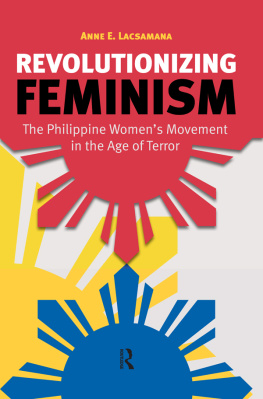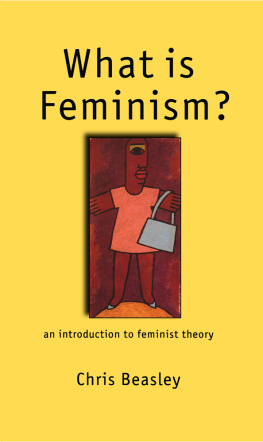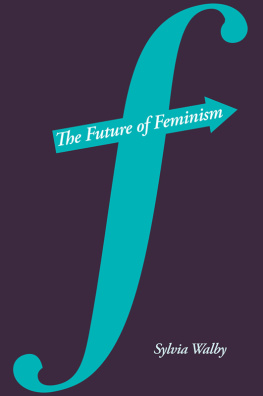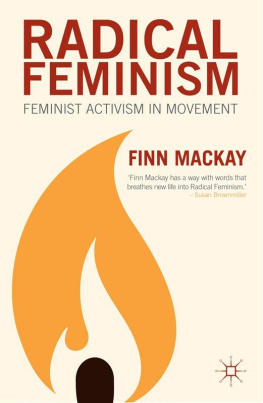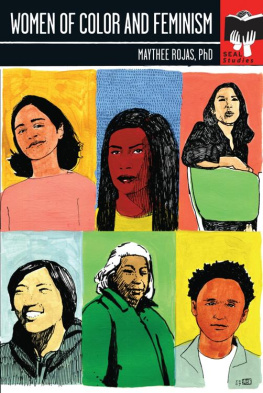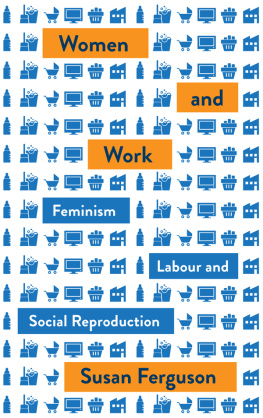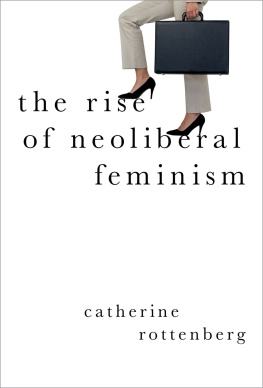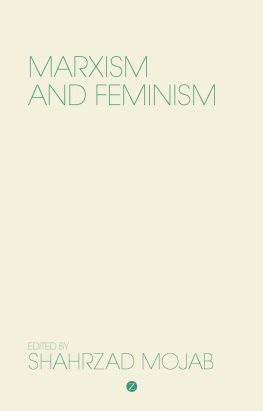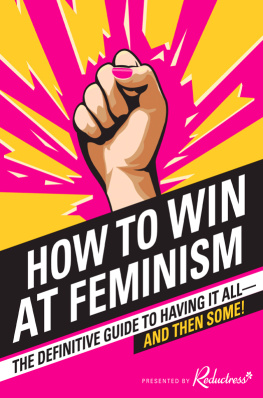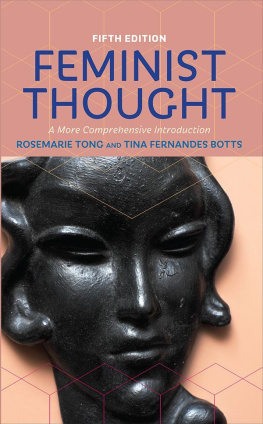Advance praise for Revolutionizing Feminism
Anne Lacsamana shines a bright light on the continuing efforts of local feminists to make nationalist anti-militarist campaigns work for the empowerment of women. If we all take these Filipina activists seriously well be able to tally the true costs of the U.S.-led global war on terror.
Cynthia Enloe, author of Nimos War, Emmas War: Making Feminist Sense of the Iraq War
R EVOLUTIONIZING F EMINISM
First published 2012 by Paradigm Publishers
Published 2016 by Routledge
2 Park Square, Milton Park, Abingdon, Oxon OX14 4RN
711 Third Avenue, New York, NY 10017, USA
Routledge is an imprint of the Taylor & Francis Group, an informa business
Copyright 2012, Taylor & Francis.
All rights reserved. No part of this book may be reprinted or reproduced or utilised in any form or by any electronic, mechanical, or other means, now known or hereafter invented, including photocopying and recording, or in any information storage or retrieval system, without permission in writing from the publishers.
Notice:
Product or corporate names may be trademarks or registered trademarks, and are used only for identification and explanation without intent to infringe.
Library of Congress Cataloging-in-Publication Data
Lacsamana, Anne E.
Revolutionizing feminism: the Philippine womens movement in the age of terror / Anne E.
Lacsamana.
p. cm.
Includes bibliographical references and index.
ISBN 978-1-59451-940-6 (hbk.: alk. paper)
1. FeminismPhilippines. 2. Womens rightsPhilippines. 3. Women foreign workers
Philippines. 4. War on Terrorism, 20012009. 5. PhilippinesForeign relationsUnited
States. 6. United StatesForeign relationsPhilippines. I. Title.
HQ1757.L33 2011
305.4209599dc22
2011009210
Designed and Typeset by Straight Creek Bookmakers.
ISBN 13: 978-1-59451-940-6 (hbk)
ISBN 13: 978-1-59451-941-3 (pbk)
For the victims and families of the extrajudicial killings and for those who remain disappeared.
C ONTENTS
Without the intellectual camaraderie, friendship, guidance, and support of the following individuals and organizations, this book could not have been written.
I am deeply indebted to Delia D. Aguilar and E. San Juan Jr. for instilling in me a critical theoretical lens from which to view the world. Your dedication to social justice and Filipino anti-imperialist feminist struggles has been invaluable for my own personal and scholarly evolution.
In the Philippines, Id like to thank Judy Taguiwalo, Sarah Raymundo, Roland Tolentino, Elizabeth Eviota, Aida Santos, Princess Nemenzo, Gert Libang, Connie Regaldo, Mila Aguilar, Mayang Taldo, and her late husband, Marcial. Your courage and activism during this period of political repression are an inspiring model for everyone committed to seeing a more peaceful, just world. Id also like to acknowledge the members of GABRIELA, Migrante International, Migrante-Europe, Samakana-Veterans Chapter, Amihan, Task Force Subic Rape, Freedom from Debt Coalition, Karapatan, and Bayan Muna.
I am grateful for the generous financial support of the American Association of University Women, whose postdoctoral fellowship during the 20082009 academic year provided me with the necessary time and resources to write this book.
Several chapters of this book originally appeared in earlier forms in the following publications. appeared in a special issue (Invisible Battlegrounds: Feminist Resistance in the Global Age of War and Imperialism) of Works and Days 59/58 (Volume 29, Nos. 1 & 2, 2010). I am thankful to the editors and publishers of these publications.
I owe special thanks to friends who have sustained me throughout this process with their friendship and laughter: Steve Yao, Kyoko Omori, Chaise LaDousa, Bonnie Urciouli, James Wells, Donald Carter, Heather Merrill, Shelley Haley, Nigel Westmaas, Angel David Nieves, Carl Rubino, Barbara Gold, Amy Gowans, Debra Boutin, Karin Aguilar-San Juan, Michael Viola, and Jeffrey Cabusao.
My colleagues in the Womens Studies Department at Hamilton College, Margaret Gentry and Vivyan Adair, deserve special mention. This book could not have come to fruition without your support and friendship. Thanks for providing me with such a warm and nurturing environment to conduct my research.
I am especially grateful to Jennifer Knerr for seeing the value in this book, Laura Esterman for ensuring a smooth production process, and their colleagues at Paradigm Publishers. It is an honor to work with an independent, progressive publishing house. Many thanks to Jan Kristiansson for her careful attention to detail and excellent copyediting skills.
Without my family, none of this could have been possible. Thanks to my parents, Gayle and Remigio G. Lacsamana, for providing me with a wellspring of unconditional love that has guided me throughout these years.
Finally, words cannot express my gratitude and love for my partner and colleague, Joyce M. Barry. You have read every word of this manuscript without complaint, providing me with incisive and invaluable feedback. This has truly been a collective effort that could not have been achieved without you, Smith, Oscar, Victoria, and Kinsey.
For a people cannot be free, until the women are free.
Anonymous, I Am Woman
But our friendship draws
its sustenance
from the rich soil of peoples war
It will continue to grow
and bear fruit
for the people.
Ma. Lorena Barros, Two Poems
Originating from the anti-imperialist nationalist resistance of the 1960s and 1970s, the multisectoral Philippine womens movement continues the struggle for national sovereignty and womens liberation during one of the darkest periods in recent Philippine history. To date, there have been over 1,100 extrajudicial killings of political activists from across the social spectrum (peasants, journalists, lawyers, students, feminists, union leaders, and so on) and hundreds more disappeared since the 2001 election of Philippine president Gloria Macapagal-Arroyo. The declaration of the country as the second front in the U.S.-led war on terror in 2002 has deepened the crisis, with increased militarization occurring throughout urban and rural areas. In addition to targeting the Abu Sayyaf, a bandit group comprising roughly 100 members with alleged loose ties to al-Qaeda and Osama bin Laden, the Arroyo administration has broadened its counterinsurgency operation to include the Communist Party of the Philippines (CPP) and its armed wing, the New Peoples Army (NPA). As a result, legal activists belonging to civil society organizations affiliated with the Philippine Left have suffered the majority of casualties; despite this, the government had not backed down on its pledge to eradicate the CPP/NPA as of 2010.
Against this backdrop of instability and de facto martial law imposed by the Arroyo administration, I conduct my examination of identity, migration, militarism, and prostitution in the Philippine context. Utilizing a historical materialist analysis, I locate Filipino women squarely within the international division of labor, making explicit the connection between the superexploitation of their labor power at home and their migration abroad to over 197 countries as domestic workers, nurses, nannies, entertainers, and mail-order brides. This reliance on a historical materialist perspective marks a fundamental methodological and theoretical break from previous postcolonial and/or transnational feminist analyses on the subject. Whereas empirical studies have focused on Filipino women as domestic workers, nurses, or mail-order brides, this book is a comprehensive study of the various factors impacting Filipino women during this period of intensified repression, paying particular attention to the revolutionary collective resistance being waged by members of groups such as GABRIELA (General Assembly Binding Women for Reforms, Integrity, Equality, and Action), Migrante International, Task Force Subic Rape (TFSR), and the Coalition Against Trafficking in WomenAsia Pacific (CATW-AP).

